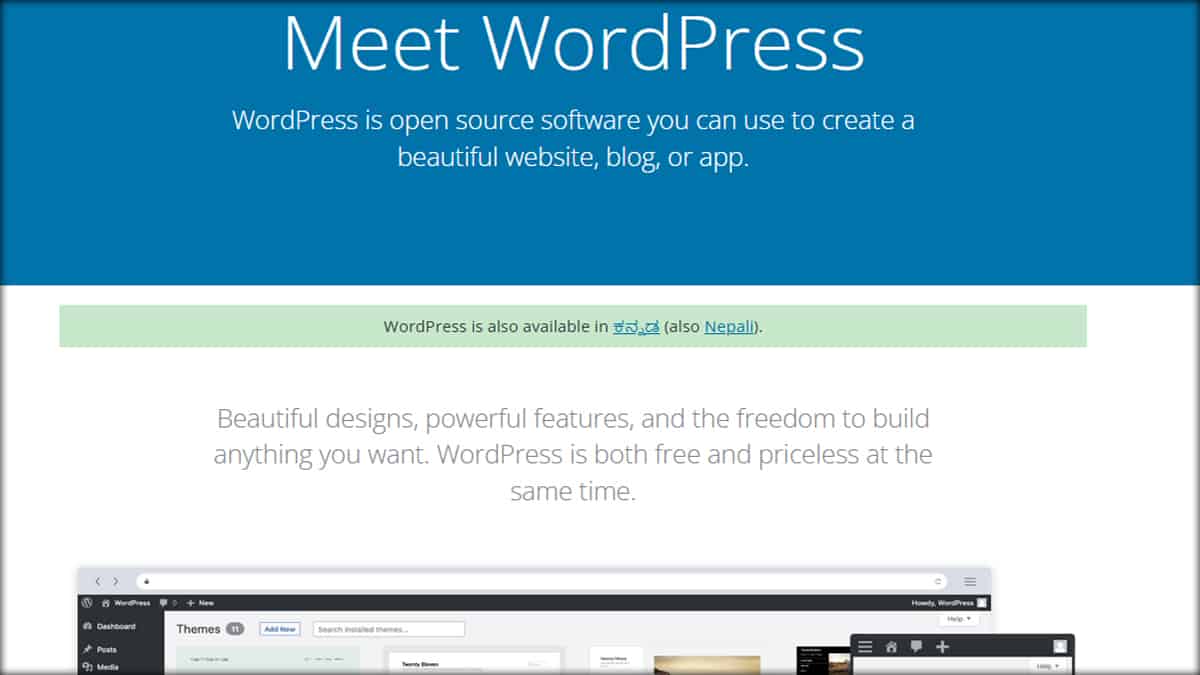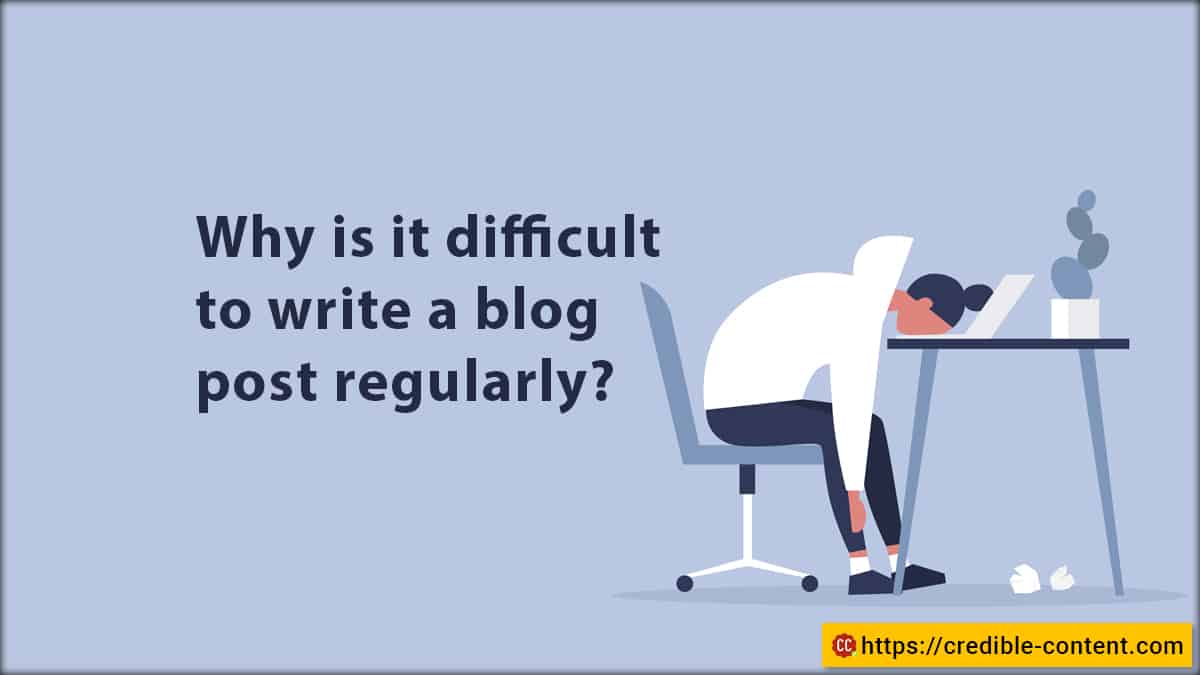Blogging isn’t as easy as it was in 2010, or even in 2015. Primarily because everybody wants to use blogging to draw traffic and improve search engine rankings.
Since it is increasingly becoming difficult to gain visibility for one’s blog, people are constantly predicting the end or demise of blogging.
Still, depending on who is presenting the figure, roughly 6 million blog posts are published each day worldwide. This naturally makes it difficult for most of the blog posts to get visibility.
Hence, blogging isn’t ending – more people are blogging, and hence, it is difficult to succeed at blogging compared to the early days.
Does it mean there is no use publishing a blog? It depends.
Despite stiff competition, people are able to carve out a space for themselves through ingenuity, hard work, originality, and perseverance. You can still find many successful new blogs.
How you gauge the success of your blog also depends on what you want to derive out of it. Advertising revenue is always difficult. Most of the entrepreneurs start a business blog because they want to develop a platform from where they can communicate their thoughts and also draw quality search engine traffic.
I regularly publish my content writing and copywriting blog because it generates constant business for me. It also helps me maintain decent search engine rankings for my main website.
The blogging platform that you choose for your blog depends on what you want to achieve. Are you seeking visibility? Do you want to improve your search engine rankings? Do you have a preference when it comes to interface and features?
Based on these factors I’m listing here 5 blogging platforms that I would recommend you use for your purpose.
How to choose the best blogging platform for yourself?
Since there are many blogging platforms available you need to know precisely what you are looking for before you pick the right blogging platform for your need. Just because many people you know might be using a particular blogging platform it doesn’t mean it is the right fit for your requirement.
Here are a few things to consider
Content creation and management
You will most likely be writing and publishing blog posts. You may use a few images. You may also sometimes like to embed videos.
The success of every blogging venture depends on your ability to create and publish content on an ongoing basis and hence, you will be interacting with the content editor almost daily.
The content editor of the blogging platform must allow you drag-and-drop features if you are comfortable with them. You should also be able to enter plain vanilla text with all standard HTML markup. You should be easily able to embed images and videos.
The content editor must be light, visually appealing, and offer you only the features you need.
Search engine optimization features
A big part of your blogging effort involves improving your search engine rankings. Your blogging platform must have all the standard features to allow you to optimize your blog posts for easier and faster crawling, indexing, and ranking.
Aside from the standard features such as ability to enter custom titles, descriptions and tags, your blogging platform must allow you to use standard SEO extensions that will enable you to analyze your text in real-time and make changes for better SEO.
Layouts, themes, and designs
Every major blogging platform allows you to use themes and layouts, but individual platform has its own capabilities. Do you already have a website and your blog must look like your website? Then you should be able to tweak the blog theme as per your website layout.
Some blogging platforms allow you to write themes at the code level, some allow you drag-and-drop features to easily create the layout, and some offer you a mix. You can choose your blogging platform accordingly.
Plugins and extensions
Since no blogging platform comes with every possible feature you may need, you can increase the capabilities of your chosen blogging platform through plugins and extensions.
As mentioned above, there are some SEO plugins and extensions that can analyze your text in real-time to let you know whether you are appropriately optimizing, under-optimizing, or over-optimizing for your keywords.
Similarly, you can find plugins and extensions for contact forms that also handle spam comments. There are some plugins that allow you to run complete shopping cart and e-commerce features from within your blogging platform.
You can make a list of extensions, integration needs, and other features that you may need in your blogging platform before deciding the best blogging platform for your blogging needs.
5 blogging platforms I would recommend
WordPress.org
This is one of the oldest blogging platforms. Ever since it was launched in 2003 it has become one of the most widely used content management systems. As of 2022 almost 43% of all the websites on the Internet are managed on WordPress. It holds 65% market share for content management systems worldwide.
Most of the web hosts these days offer WordPress.org as a pre-installed hosting package so you don’t need to physically install it on your server. Even if you go for conventional hosting packages, WordPress.org can be installed in a single click.
Once the WordPress blogging platform is installed it is ready to work out of the box. You can straightaway start publishing blog posts although you would want to customize it in certain ways. It comes with standard themes and layouts that can help you publish blog posts immediately.
Why do I recommend WordPress.org as a blogging platform of my preference?
The best part is that all your content remains with you. The blog posts that you publish, the images that you use, they all belong to you.
All the blog posts are stored in a MySQL database. You can always take backup.
In case you want to move to another web host, you are not stuck. All you need to do is take the backup of your MySQL database and then restore the backup on the new web host.
It is also a very lean CMS. Unless you install lots of plugins and extensions it has a very straightforward source code. This is very important for your search engine rankings. The less source code you have, the easier it is for search engine crawlers to access your main content.
Aside from the fact that you can fully customize it as per your needs – make it look exactly the way your existing website looks – it is harder for your content to be found by your target audience. You are publishing everything under your domain. Unless your content begins to be crawled or unless you have a good social media presence, nobody knows about what you are publishing. You have to start everything from scratch.
Also, in some cases, you may require knowledge of PHP, JavaScript and HTML to tweak your layout just the way you want. For that, WordPress developers are easily available.
LinkedIn is a social networking platform for professionals, but it is also fast emerging as a viable blogging platform. The content that you publish through the blogging platform of LinkedIn is also called article publishing.
Why use LinkedIn as a preferred blogging platform?
It already has a ready-made audience. It enjoys better search engine presence compared to a new blog that you kickstart under your domain name. It is automatically search engine optimized. You can get visibility faster because good content is promoted among the Lincoln audience.
Since it is a third-party hosted blogging platform in terms of customization and extensibility, you can’t do much. The only benefit is that, provided your blog posts are good and informative, you get traction faster.
Also, LinkedIn prefers blog posts published within its platform when it promotes content compared to links existing somewhere else.
Medium
Medium is a full-fledged third-party blogging platform. The entire content exists on Medium. Then why am I recommending it?
Medium is a very large blogging community. It has its own audience, its own readership. It gives you live stats on how many people look at your stories and how many read them till the end. It has a unique algorithm to present appropriate content to particular readers.
In the beginning I have written that many people discount blogging as a trend that is waning, but Medium created a space for itself when bigger blogging platforms such as WordPress.com, Tumblr and Blogger.com already had thriving ecosystems. It shows that if you offer something unique, if you can stand out, you can still carve out a niche for yourself.
The Wix blogging platform
Wix is for designing and hosting websites but since most websites also prefer to have a blog, it has its own blogging platform. It has a free version but then on every blog post the Wix branding appears.
The primary strength of Wix is its WYSIWYG editor for creating layouts. You can literally drag-and-drop various components of the design that you want to create. It also has a drag-and-drop editor.
The free version allows you to create your blog as the wix.com subdomain but if you upgrade to a premium version you can host your blog under your own domain. There is nothing to install. You just need to connect your domain with the Wix web hosting server and all the features immediately become available to you.
It has blogging templates for every business need. Its biggest draw is minimalistic layouts and ease of use.
The only problem is that once a template is created, you cannot change it.
Squarespace
Just like the Wix blogging platform, Squarespace is a web hosting and web design platform that can also be used to host a blog.
Squarespace is known for its sleek designs with a touch of minimalism. It is preferred by artists and designers as it focuses more on presenting portfolios without obstructions. It has beautiful templates that you can easily tweak. It is said that individual templates are handcrafted by an in-house Squarespace team of designers.
The entire interface at Squarespace works on the philosophy of drag-and-drop and no-code. You don’t have to meddle with a back-end editor to get the layout that you desire. When you are building a page, it looks exactly as it is being designed.
Unlike WordPress.org it does not have thousands of plugins and extensions, but you can have a shopping cart integrated within your Squarespace blogging platform setup. You can also integrate email marketing. There is a members-only area for paid subscriptions. You can also host podcasts.
Conclusion
As someone who prefers better control over design, layout, and content, my most preferred blogging platform remains WordPress.org. Yes, I am biased because, although I’m not a professional WordPress designer, I have a fair idea of how to handle the basic theme-altering functions to get the desired layout for my websites and blogs.
After that it is Medium. Very robust. Easy to publish. Real-time stats. Greater chance of your content being found by the right audience.










